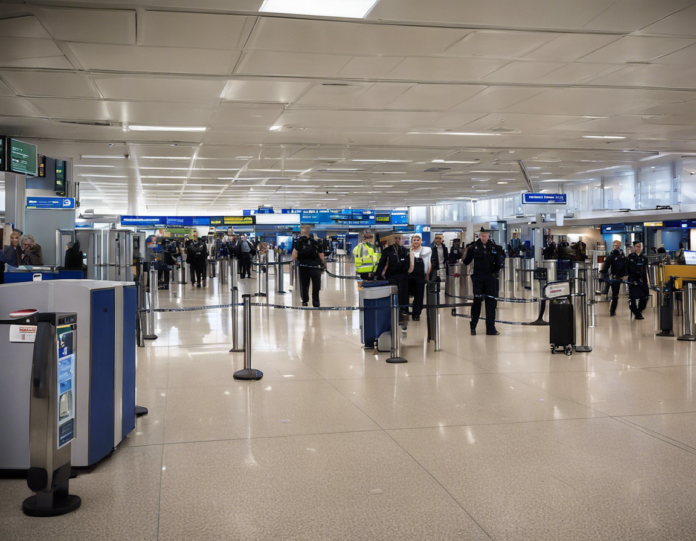On July 6, 2021, a security incident unfolded at Birmingham-Shuttlesworth International Airport, leaving passengers and authorities on edge. The incident, which involved a man breaching security and gaining unauthorized access to the tarmac, raised concerns about the effectiveness of airport security measures and the potential threats posed by such breaches. In this article, we will delve into the details of the Birmingham Airport security incident, explore the implications of such breaches, and discuss ways to enhance airport security to prevent similar occurrences in the future.
The Birmingham Airport Security Incident: What Happened?
The security breach at Birmingham Airport transpired when a man managed to bypass security checkpoints and make his way onto the tarmac area without proper authorization. The individual’s actions triggered a major security alert, leading to the temporary suspension of airport operations and the evacuation of passengers from the terminal.
Upon gaining access to the tarmac, the intruder reportedly approached a parked aircraft, causing alarm among airport staff and law enforcement officials. The incident raised concerns about the potential threat posed by unauthorized individuals gaining proximity to aircraft, highlighting the need for robust security protocols to safeguard passengers, aircraft, and airport personnel.
Implications of Airport Security Breaches
Incidents like the Birmingham Airport security breach have far-reaching implications for airport security and public safety. Some of the key consequences include:
-
Risk to Passenger Safety: Unauthorized individuals gaining access to restricted areas pose a direct threat to passenger safety and aircraft security. Such breaches can result in potential acts of sabotage, terrorism, or other criminal activities.
-
Disruption of Operations: Security incidents prompt the disruption of airport operations, leading to flight delays, cancellations, and passenger inconvenience. Consequently, these disruptions can have significant economic repercussions for airlines and airport stakeholders.
-
Damage to Reputation: High-profile security breaches can tarnish an airport’s reputation and erode public trust in its security measures. This can have long-term consequences for passenger volumes, airline partnerships, and the overall perception of the airport as a secure travel hub.
Enhancing Airport Security Measures
To mitigate the risks associated with security breaches and bolster airport security, various measures can be implemented:
-
Strengthening Perimeter Security: Enhancing the physical barriers around the airport perimeter, installing intrusion detection systems, and conducting regular patrols can deter unauthorized access to sensitive areas.
-
Implementing Access Control Measures: Implementing stringent access control measures, such as biometric authentication, key card systems, and security checkpoints, can restrict unauthorized entry to secure zones within the airport.
-
Enhancing Surveillance Systems: Deploying advanced surveillance technologies, including CCTV cameras, motion sensors, and video analytics, can improve threat detection capabilities and facilitate a rapid response to security incidents.
-
Training and Awareness Programs: Providing comprehensive training to airport staff, security personnel, and stakeholders on security protocols, emergency procedures, and threat recognition can enhance vigilance and preparedness in responding to security breaches.
-
Collaboration with Law Enforcement: Establishing strong partnerships with local law enforcement agencies, border control authorities, and intelligence services can enhance information sharing, coordination of response efforts, and the apprehension of individuals involved in security breaches.
Frequently Asked Questions (FAQs)
Q1: How common are security breaches at airports?
A1: While security breaches at airports are relatively rare, they can have significant implications for public safety and airport operations when they occur.
Q2: What are the typical motives behind airport security breaches?
A2: Motives behind airport security breaches can vary and may include trespassing, smuggling, acts of terrorism, mental health issues, or personal grievances.
Q3: How are airports adapting their security measures in response to evolving threats?
A3: Airports are continually upgrading their security protocols by integrating technology, enhancing screening procedures, conducting risk assessments, and collaborating with security agencies to address emerging threats.
Q4: Can passengers play a role in enhancing airport security?
A4: Passengers can contribute to airport security by following guidelines, reporting suspicious activities, cooperating during security checks, and maintaining vigilance in public areas.
Q5: What are the legal consequences for individuals involved in airport security breaches?
A5: Individuals who breach airport security may face criminal charges, fines, imprisonment, and possible bans from air travel, depending on the severity of their actions and motives.
In conclusion, the Birmingham Airport security incident serves as a stark reminder of the persistent challenges faced by airports in maintaining robust security measures. By addressing vulnerabilities, enhancing response capabilities, and fostering a culture of vigilance, airports can fortify their defenses against security breaches and uphold the safety and well-being of passengers and aviation personnel.













